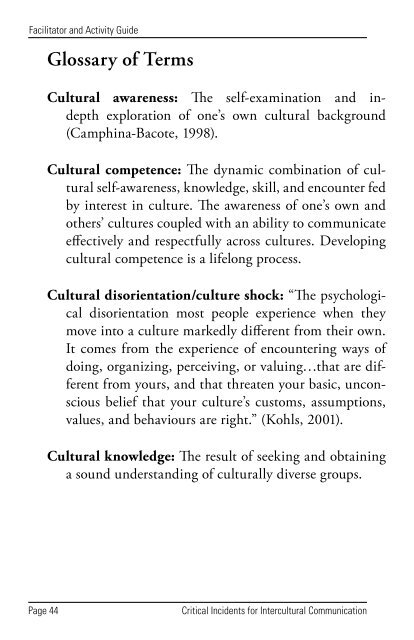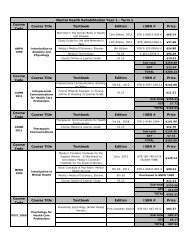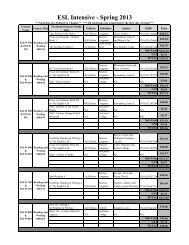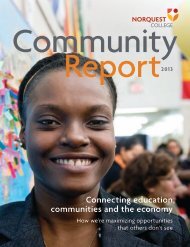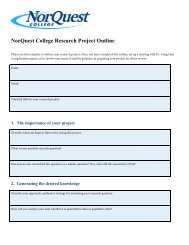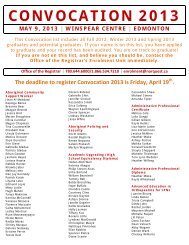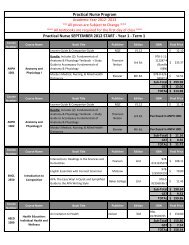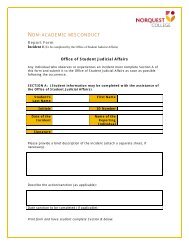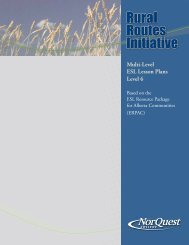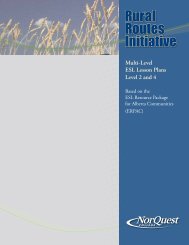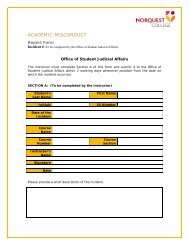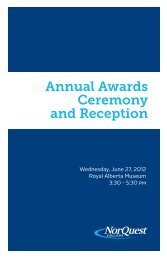Critical Incidents for Intercultural Communication - NorQuest College
Critical Incidents for Intercultural Communication - NorQuest College
Critical Incidents for Intercultural Communication - NorQuest College
- No tags were found...
Create successful ePaper yourself
Turn your PDF publications into a flip-book with our unique Google optimized e-Paper software.
Facilitator and Activity GuideGlossary of TermsCultural awareness: The self-examination and indepthexploration of one’s own cultural background(Camphina-Bacote, 1998).Cultural competence: The dynamic combination of culturalself-awareness, knowledge, skill, and encounter fedby interest in culture. The awareness of one’s own andothers’ cultures coupled with an ability to communicateeffectively and respectfully across cultures. Developingcultural competence is a lifelong process.Cultural disorientation/culture shock: “The psychologicaldisorientation most people experience when theymove into a culture markedly different from their own.It comes from the experience of encountering ways ofdoing, organizing, perceiving, or valuing…that are differentfrom yours, and that threaten your basic, unconsciousbelief that your culture’s customs, assumptions,values, and behaviours are right.” (Kohls, 2001).Cultural knowledge: The result of seeking and obtaininga sound understanding of culturally diverse groups.Facilitator and Activity GuideCultural norms: The collective understanding of and expectationsregarding what constitutes proper or improperbehaviour in a given situation (Olsen, 1978). Culturaltraditions, beliefs, and values intersect to influence thedevelopment of collective norms within a cultural orethnic community.Cultural skill: This skill includes the ability to per<strong>for</strong>mcultural assessments, communicate effectively, andreflect and continually build self-awareness.Cultural values: A set of priorities that identify and guidedesirable or undesirable behaviours and fair or unfairactions.Culturally shared beliefs: A set of fundamental assumptionsthat people hold to be true without question. Thesebeliefs can revolve around questions about the origins ofhuman beings; the concepts of time and space; reality;the existence of a supernatural being(s); and the meaningof life, death, and the afterlife.Culturally shared traditions: These traditions (e.g., celebratingKwanza, Ramadan, or Thanksgiving) can beshaped by and include myths, legends, ceremonies, andrituals that are passed on from one generation to thenext via oral and written mediums.Page 44<strong>Critical</strong> <strong>Incidents</strong> <strong>for</strong> <strong>Intercultural</strong> <strong>Communication</strong><strong>Critical</strong> <strong>Incidents</strong> <strong>for</strong> <strong>Intercultural</strong> <strong>Communication</strong> Page 45


